Being a medical expert witness can be rewarding but also incredibly stressful. Burnout is a real and common challenge for professionals in this role. Let’s break down what burnout means in this context.

Defining Burnout in the Context of Medical Expert Witnesses
Burnout is more than just feeling tired. For medical expert witnesses, it often involves:
- Emotional exhaustion: Feeling drained from constant pressure and demands.
- Mental fatigue: Difficulty focusing or thinking clearly due to stress.
- Reduced sense of accomplishment: Feeling that your efforts aren’t making a difference.
- Depersonalization: Becoming cynical or detached from your work and cases.
This can affect both your career and personal life.
Common Causes of Burnout for Medical Expert Witnesses
Several factors contribute to burnout in this demanding role:
Cause | Description |
High-stress legal environment | Legal cases often involve conflict and intense scrutiny. |
Intense scrutiny and cross-examination pressure | Being questioned rigorously can be mentally exhausting. |
Heavy workload and time constraints | Balancing case preparation with clinical duties creates pressure. |
Ethical dilemmas and emotional toll of cases | Cases can involve difficult decisions and emotional strain. |
Each of these adds layers of stress that can wear down even the strongest professionals.
Signs and Symptoms of Burnout in Medical Expert Witnesses
Recognizing burnout early is key. It shows up in different ways — mentally, physically, and behaviorally.
Psychological Symptoms
- Anxiety: Constant worry about cases or performance.
- Depression: Feeling hopeless or losing interest in work.
- Irritability: Becoming easily frustrated or angry.
- Detachment or cynicism: Feeling emotionally distant from your cases or questioning their importance.
Physical Symptoms
Burnout doesn’t just affect the mind; it impacts the body too:
- Chronic fatigue and low energy
- Frequent headaches or muscle tension
- Trouble sleeping or insomnia
Behavioral Changes
Burnout often changes how experts behave at work and beyond:
- Decreased productivity or difficulty meeting deadlines
- Avoiding certain cases or responsibilities
- Withdrawing from colleagues and social interactions
If you notice several of these signs in yourself, it’s important to take action. Burnout doesn’t just disappear on its own.
How Burnout Affects Medical Expert Witnesses Professionally and Personally
Burnout is more than feeling tired—it can impact every part of your life. For medical expert witness services, the consequences can be serious both at work and home.
Impact on Testimony Quality and Credibility
When burnout takes hold, your ability to give clear, confident testimony can suffer. Here’s how:
- Impaired judgment: Stress clouds decision-making, making it harder to stay objective.
- Reduced focus: You may struggle to recall details or explain complex medical information clearly.
- Lower confidence: Doubting yourself can show during cross-examination, hurting credibility.
- Increased errors: Burnout can lead to mistakes in IME reports or testimony, which may be costly.
Even small lapses can have big consequences in legal cases where your expert opinion matters most.
Consequences for Career Longevity
Burnout doesn’t just affect individual cases. It can influence your entire career path:
- Early retirement: Some experts leave the role sooner than planned due to stress.
- Fewer cases accepted: You might limit your workload or avoid challenging cases.
- Damaged professional reputation: Inconsistent performance can harm your standing in the legal and medical communities.
These impacts make it harder to sustain a long, rewarding career as a medical expert witness.
Effects on Personal Well-being and Relationships
The stress doesn’t stay at work. Burnout can spill into your personal life in many ways:
- Feeling emotionally drained even at home.
- Strained relationships with family and friends due to irritability or withdrawal.
- Loss of enjoyment in hobbies or activities once loved.
- Increased risk of anxiety, depression, or other mental health challenges.
Recognizing these effects early is important for maintaining a healthy balance.
Strategies to Prevent and Manage Medical Expert Witness Burnout
The good news? Burnout is manageable and often preventable. Here are some practical strategies to help you cope and thrive.
Establishing Healthy Boundaries Between Work and Personal Life
Setting clear limits is essential:
- Create a schedule: Allocate specific times for case work and personal time.
- Say no when needed: Don’t overcommit—know your limits.
- Take breaks: Step away during intense periods to recharge.
Building a Support Network
You don’t have to go it alone. Surround yourself with people who understand:
- Peer support groups: Connect with fellow medical expert witnesses.
- Professional counseling: Seek therapy if burnout symptoms feel overwhelming.
- Mentors: Experienced colleagues can offer guidance and encouragement.
Developing Stress-Reduction Techniques
Simple daily habits can lower stress and improve resilience:
Technique | Benefits | Tips for Practice |
Mindfulness | Enhances focus and reduces anxiety | Start with 5-minute breathing exercises daily |
Meditation | Calms the mind and improves emotional health | Use apps or guided sessions for ease |
Physical exercise | Boosts mood and energy | Aim for 20-30 minutes of movement most days |
Adequate sleep | Restores mental and physical health | Maintain a consistent sleep routine |
Continuing Education and Training on Managing Legal Stressors
Stay prepared by learning how to handle the unique stresses of legal work:
- Attend workshops or webinars focused on courtroom psychology.
- Read up on best practices for expert witness testimony under pressure.
- Regularly update skills to feel more confident and in control.
Seeking Professional Help When Needed
Sometimes self-care isn’t enough. Recognize when professional intervention is necessary:
- Persistent feelings of hopelessness or anxiety.
- Physical symptoms that don’t improve.
- Difficulty functioning in work or personal life.
A mental health professional can provide tailored support to help you recover and maintain your well-being.

Resources and Tools for Medical Expert Witnesses
Managing burnout doesn’t have to be a solo journey. There are many helpful resources designed just for medical experts like you. These can provide guidance, community, and professional help to keep burnout at bay.
Recommended Books and Articles on Burnout Prevention
Reading about burnout and strategies to manage it can be eye-opening. Here are some highly regarded books and articles:
Title | Author | Why It Helps |
Burnout: The Secret to Unlocking the Stress Cycle | Emily Nagoski, Amelia Nagoski | Explains the science behind burnout and offers practical advice |
The Expert Witness Stress Management Guide | Various contributors | Focuses specifically on legal and expert witness stressors |
Mindfulness for Professionals | Jon Kabat-Zinn | Teaches mindfulness techniques tailored for busy professionals |
Exploring these can give you fresh tools and perspectives.
Online Forums and Support Communities
Connecting with peers facing the same challenges can be comforting and motivating:
- Medical Expert Witness Forums: Platforms where experts share tips, case experiences, and emotional support.
- Burnout Support Groups: Many online groups focus on stress management for healthcare professionals.
- LinkedIn Groups: Professional groups where you can network and find mentors.
Participating regularly helps reduce isolation and builds camaraderie.
Professional Coaching and Therapy Options
Sometimes, a little extra help goes a long way. Professional coaching and therapy can offer personalized strategies:
- Licensed Therapists: Specialized in burnout, stress, and work-related anxiety.
- Executive Coaching: Tailored for experts juggling high-pressure roles.
- Employee Assistance Programs (EAPs): Some workplaces offer free or low-cost counseling services.
Finding the right professional can make all the difference.
Breaking It All Down
Serving as a medical expert witness comes with unique pressures that can lead to burnout. This burnout impacts not only your professional performance but also your personal well-being. Recognizing the signs early and understanding the causes can help you take meaningful steps to protect yourself.
By setting healthy boundaries, building supportive networks, practicing stress-reduction techniques, continuing your education, and seeking professional help when needed, you can manage burnout effectively. Remember, taking care of your mental health is not a luxury—it’s essential for a sustainable and rewarding career.
You’re not alone in this. Prioritize your well-being, and you’ll be better equipped to serve with confidence and clarity.
Frequently Asked Questions
What makes being a medical expert witness more stressful than other medical roles?
Serving as a medical expert witness involves the added pressure of legal scrutiny, including cross-examination, ethical challenges, and the responsibility of influencing court decisions. This legal context creates unique stressors not typically found in standard medical practice.
How can I tell the difference between normal work stress and burnout?
Normal stress tends to be temporary and related to specific tasks, while burnout is a chronic state of emotional, mental, and physical exhaustion that affects your motivation, performance, and well-being over time.
Is burnout common among medical expert witnesses?
Yes, burnout is quite common due to the high-pressure nature of legal cases, workload demands, and the emotional weight of providing expert testimony.
Can burnout affect my relationships with colleagues and attorneys?
Absolutely. Burnout can lead to withdrawal, irritability, or communication breakdowns, which may strain professional relationships and collaboration.
Are there early warning signs of burnout I should watch for?
Early signs include feeling unusually tired, loss of enthusiasm for cases, increased cynicism, and difficulty concentrating. Catching these early can help you intervene before burnout worsens.
How does burnout impact my ability to handle cross-examinations?
Burnout can reduce your focus and confidence, making it harder to respond calmly and clearly under pressure during cross-examinations.
Can improving time management reduce the risk of burnout?
Yes. Prioritizing tasks, setting realistic deadlines, and ensuring adequate downtime can significantly lower stress levels.
Are there specific techniques to prepare mentally before a court appearance?
Techniques such as visualization, deep breathing exercises, and positive affirmations can help calm nerves and improve focus before testimony.
How can peer support groups help with burnout?
They provide a safe space to share experiences, reduce feelings of isolation, and exchange practical coping strategies.
Is it normal to feel conflicted about cases emotionally?
Yes, especially in difficult or ethically complex cases. These feelings can contribute to burnout if not addressed properly.
What role does physical health play in preventing burnout?
Physical health is crucial; regular exercise, balanced nutrition, and sufficient sleep strengthen your resilience to stress.
Offsite Resources
American Medical Association (AMA) — https://www.ama-assn.org/
Offers a wealth of resources for physician wellness, including tips on managing stress and preventing burnout.
Physician Support Line — https://www.physiciansupportline.com/
A confidential support network specifically for doctors experiencing burnout or emotional distress.
National Alliance on Mental Illness (NAMI) — https://www.nami.org/
Provides education and support for mental health challenges, including stress and burnout.
The Mayo Clinic — https://www.mayoclinic.org/
Features expert advice on stress management, mindfulness, and mental wellness.
Mindful — https://www.mindful.org/
A great resource for mindfulness techniques and meditation practices to help reduce stress.
American Psychological Association (APA) — https://www.apa.org/
Offers articles, research, and tools related to workplace stress and burnout prevention.
Medscape Physician Wellness — https://www.medscape.com/physician-wellness
Tailored content focusing on physician burnout, wellness strategies, and mental health resources.

What's Next?
If you’re feeling overwhelmed by the demands of serving as a medical expert witness or need guidance on managing stress and burnout, don’t hesitate to reach out. At mlpime.com, we’re here to support you with expert advice and personalized assistance. Call us today at 1-833-465-7463 to speak with a knowledgeable team member who understands the unique challenges you face. Your well-being matters—let’s work together to help you stay balanced and confident in your important role.
